Take Action
You can make a difference in the future of North America's boreal forest. Speak up for our songbirds, whether by petition or through your spending choices!
U.S. Boreal Supporters
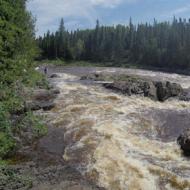
Millions of migratory birds nest in the watershed of the North French River in Ontario’s Boreal Forest. At least 165 bird species either nurture their young or stop to bulk up during migration in this pristine watershed, the last in the region undisturbed by industrial development. Many of these birds likely spend their winters in your backyard or a nearby park.
Moose Cree First Nation, whose traditional lands encompass this watershed, have declared the region protected from development and are seeking recognition from the Ontario government. Ask the Ontario government to protect this bird-rich habitat today.
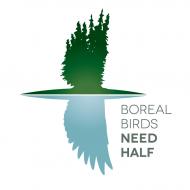
Billions of migratory birds flock to North America's boreal forest each spring to breed over the summer. Many of the 325+ bird species that breed in or rely on the boreal are highly reliant on this vast forest, and now they are in need of our help. The Boreal Songbird Initiative, Ducks Unlimited, Audubon, and other top bird groups across the continent are endorsing the need to protect at least half of North America's boreal forest for our birds. Add your name to the Boreal Birds Need Half endorsement to ensure these billions of birds have a home to return to for generations to come.
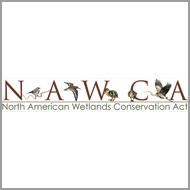
The North American Wetlands Conservation Act (NAWCA) conserves North America's waterfowl, fish and wildlife resources while producing a variety of environmental and economic benefits. Its success is driven by partnerships involving federal, state and local governments, nonprofit organizations, and community groups. Every federal dollar provided by NAWCA must be matched by at least one dollar from non-federal sources.
Ask your local officials for their continued support of NAWCA funding so that it can continue to cultivate success for wetlands conservation on the ground.
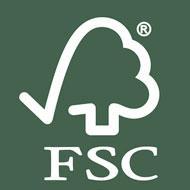
Nearly two-thirds of all forest product exports from Canada's boreal forest go directly to the United States. Much of this is used to make paper, including catalogs, junk mail, magazines, and newspapers. If long-term harvest trends continue, millions of acres of boreal forest will be logged in Canada over the next decade. The choices of U.S. consumers really do make a difference!
- Home improvement projects coming up? Look for the Forest Stewardship Council (FSC) logo on wood and paper products. If your store doesn't carry FSC-certified products, ask them to! FSC even has their own boreal forest-specific set of sustainable requirements.
- Use the highest post-consumer recycled fiber products you can find for all your paper needs, including printing paper, paper towels, toilet paper, etc. The closer it is to being 100% post-consumer recycled material, the better.
Canadian Boreal Supporters

Millions of migratory birds nest in the watershed of the North French River in Ontario’s Boreal Forest. At least 165 bird species either nurture their young or stop to bulk up during migration in this pristine watershed, the last in the region undisturbed by industrial development. Many of these birds likely spend their winters in your backyard or a nearby park.
Moose Cree First Nation, whose traditional lands encompass this watershed, have declared the region protected from development and are seeking recognition from the Ontario government. Ask the Ontario government to protect this bird-rich habitat today.

Billions of migratory birds flock to North America's boreal forest each spring to breed over the summer. Many of the 325+ bird species that breed in or rely on the boreal are highly reliant on this vast forest, and now they are in need of our help. The Boreal Songbird Initiative, Ducks Unlimited, Audubon, and other top bird groups across the continent are endorsing the need to protect at least half of North America's boreal forest for our birds. Add your name to the Boreal Birds Need Half endorsement to ensure these billions of birds have a home to return to for generations to come.
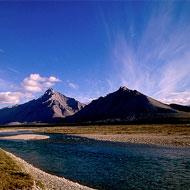
In the northern expanses of Yukon's boreal forest lies a vast drainage basin that contains one of the most wild and untouched expanses of wilderness in North America. The Peel River Watershed is undergoing a potentially historic transformation into a large protected area, but the Yukon government has rejected the recommendation to put 80% of the area off limits to development. Let Yukon know that when it comes to conservation, bigger is typically better.
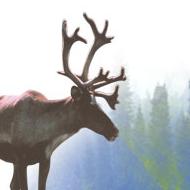
Woodland Caribou, often referred to as "Boreal Caribou" due to their almost exclusive use of boreal forest habitat, have been in severe decline over the past half-century. A combination of climate change and increasing expansion of industrial development into their habitat has left their population dwindling. Visit the "Caribou and You" action page and help protect this iconic species.
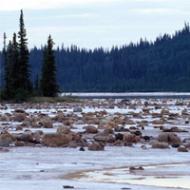
Wood Buffalo National Park, Canada’s largest National Park celebrated around the world for its Outstanding Universal Values, is under threat. The Mikisew Cree First Nation have taken action to protect Wood Buffalo National Park by asking UNESCO to place it on the List of World Heritage Sites in Danger.
Write to Prime Minister Justin Trudeau asking him, and relevant ministers at the federal and provincial levels, to take steps to stop the development of hydroelectric projects and oil sands activities that may negatively affect the Park.
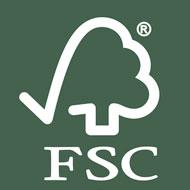
Although much of Canada's boreal forest products go directly to the United States, a lot still stays in Canada. If long-term harvest trends continue, millions of hectares of boreal forest will be logged in Canada over the next decade. The choices of Canadian consumers really do make a difference!
- Home improvement projects coming up? Look for the Forest Stewardship Council (FSC) logo on wood and paper products. If your store doesn't carry FSC-certified products, ask them to! FSC even has their own boreal forest-specific set of sustainable requirements.
- Use the highest post-consumer recycled fiber products you can find for all your paper needs, including printing paper, paper towels, toilet paper, etc. The closer it is to being 100% post-consumer recycled material, the better.
How you can help
Subscribe
Get BSI E-Updates with action alerts and news about boreal birds and the Canadian Boreal Forest.

